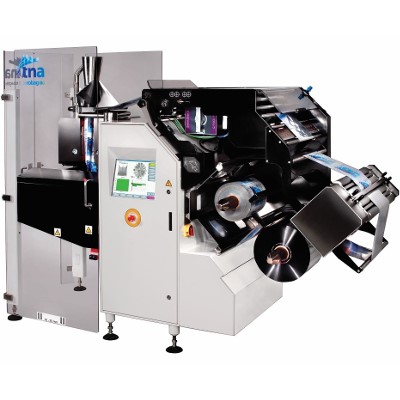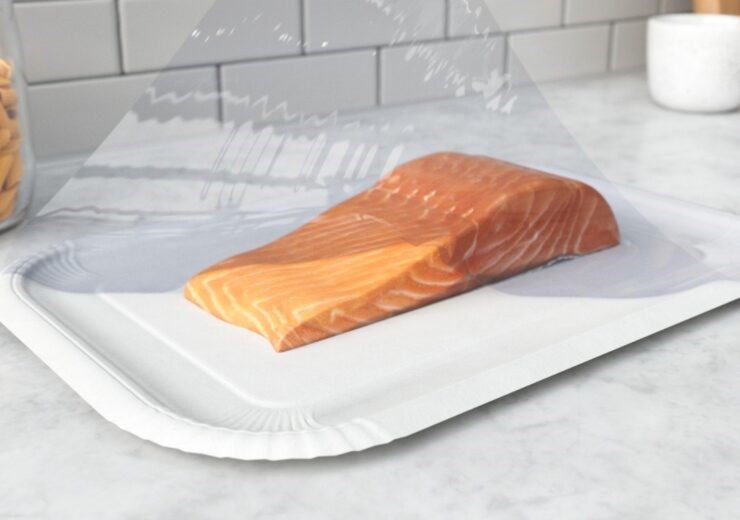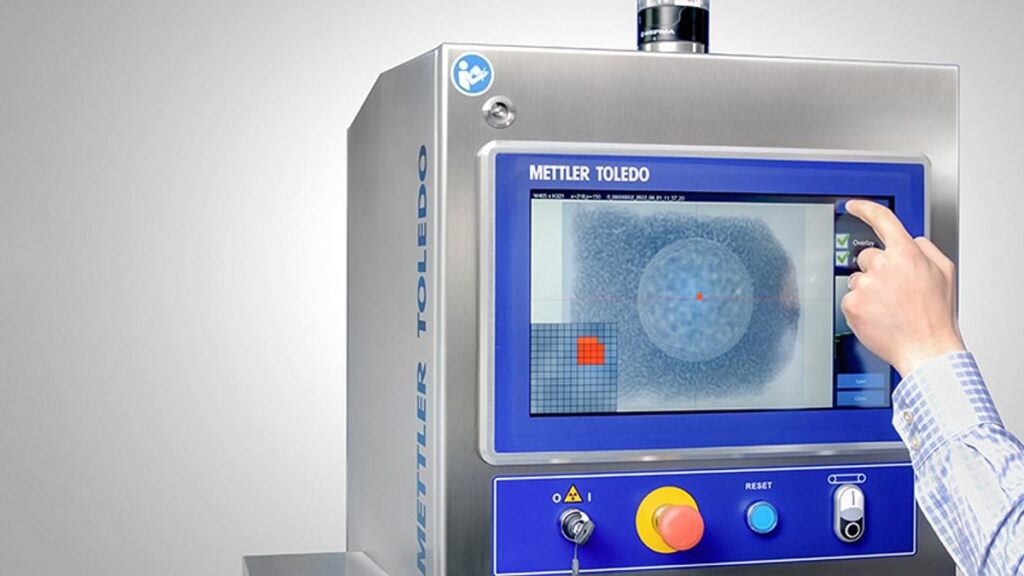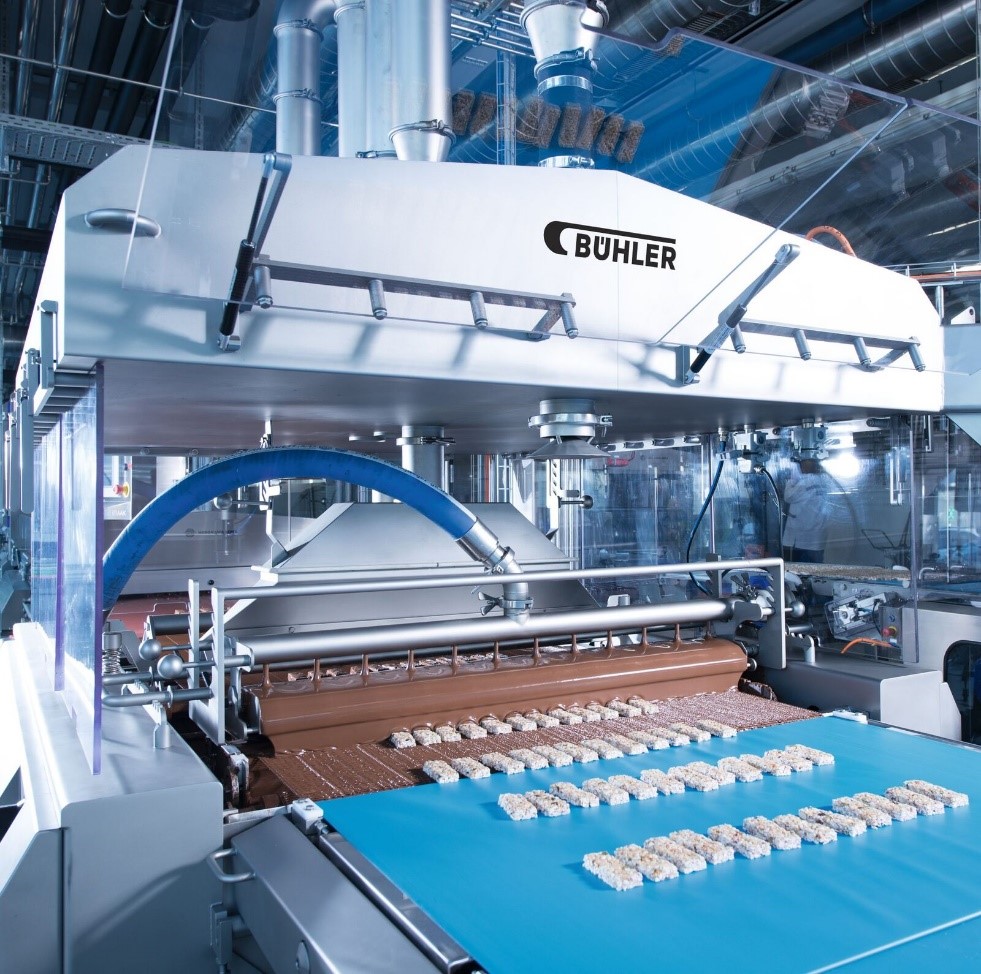This year’s Interpack was dominated by sustainable packaging solutions, with exhibitors displaying a variety of technologies addressing important concerns such as greenhouse gas emissions, cost, and efficiency. Here’s a rundown of recent releases…
Earlier this month, 1430,000 tourists from 156 nations descended on Düsseldorf to examine the newest packaging ideas. In this post-event summary, we outline some of the most recent releases as well as what experts believe to be the key trends in food and beverage packaging today.
TNA supports augmented reality and sustainable film

According to TNA Chief Sales Officer Eric Geling, the industry is dominated by four factors: automation, digitalization, efficiency, and sustainability.
TNA has developed a variety of sustainable film materials for its vertical form fill and seal (VFFS) systems and continues to develop cutting-edge software to offer “tangible sustainable benefits” in order to assist food manufacturers in addressing current and new market trends.
Our ‘Perfect Pair’ solution, which combines an integrated display controller system with EtherCAT® real-time protocol, offers information from the TNA checkweigher or product in-seal inspection to make sure operators have the ideal weighing bucket configuration for rapid troubleshooting.
As a consequence, snack producers may operate their lines for up to 2,800 additional bags per day with little downtime. Additionally, our TNA robag® 3e offers a more effective, environmentally friendly packaging process that lowers product waste levels to only 0.1%.
Additionally, the company has created single serrated jaws that use less of the recyclable but non-biodegradable biaxially oriented polypropylene (BOPP).
“For VFFS systems that create 150 bags per minute, this can result in material savings of up to 5 mm per seal, or 2.26 million bags per month. 10 packing in a factory “For VFFS systems that create 150 bags per minute, this can result in material savings of up to 5 mm per seal, or 2.26 million bags per month. This saves roughly 390 km of data per month in a plant with 10 packing lines running at least 12 hours a day, according to Gedling.
TNA has also introduced smart technologies to optimise production lines and improve product quality as manufacturers look to increase automation and digitalization in the food industry. One such smart technology is its TNA remove assist service, which uses augmented reality (AR) to allow its engineers to remotely guide machine maintenance, installation, training, and servicing in real-time.
Regardless of where they are in the globe, this provides food makers with the specialised assistance they need to keep their lines running properly, according to Geling.
Food manufacturers may now see the manufacturing line before making any decisions thanks to the newest extended reality (XR) technology combined with virtual reality (VR) headsets.
Stora Enso focuses on shelf life and alternative materials

Stora Enso rolls out Trayforma BarrPeel material for food packaging
Stora Enso, a manufacturer of renewable goods in packaging, biomaterials, and timber construction, likewise placed a high priority on sustainability when it unveiled its most recent advancement in bio-based packaging and a polymer skin film to seal the product.
According to Jaana Keskitalo, technical account manager for Trayforma & Barriers at Stora Enso, “With Trayforma BarrPeel, we improve environmental performance on two levels: protecting food to provide a longer shelf life, and reducing the share of fossil-based materials.”
“We take special pride in the fact that we can accomplish this while simultaneously offering a fantastic user experience. With just a little effort, consumers can enjoy their goods thanks to our readily peelable tray material.”
The detection portfolio of Mettler-Toledo grows
Ian Robertshaw, worldwide key account manager for Mettler-Toledo Product Inspection, agreed that automation, efficiency, and sustainability were important developments.
“Integrating innovative production line technologies, such as product inspection solutions, can help improve sustainability by reducing waste, lower manufacturing costs by boosting productivity, and increase cost-effectiveness by lowering the Total Cost of Ownership (TCO) of the technology investment,” the author said.
“The X2 Series, which was introduced during Interpack, is one of our most exciting recent product introductions. Modern ContamPlusTM software powers this cutting-edge line of x-ray inspection devices, which are built to endure longer, work more effectively, and examine a variety of foreign body pollutants. The X12 High Performance X-ray System and the X32 Advanced X-ray Solution are two modularly constructed variants from the X2 Series that are reasonably priced. Both versions come equipped with HiGain detectors, which enable superior contamination identification and produce crisper pictures, eventually leading to less waste and a reduced total cost of ownership.

In addition to this, Mettler-Toledo demonstrated its newly released 100% automated label inspection system. This covers the technique used in the V13 Flat Pack Label Inspection. This robust device does thorough label inspection inspections from the front, rear, bottom, and top. It is intended to guarantee precise and uniform label placement on every product, obviating the need for expensive rework and cutting down on waste. Manufacturers may enhance productivity, save personnel costs, and improve product quality by automating the label inspection process, according to Robertshaw.
New capabilities have also been added to its metal detecting devices, including the newly released SENSETM software upgrade.
The M30 R-Series metal detection system may provide next-level automation and reasonably priced compliance to firms aiming to enhance productivity since this technology delivers increased metal detection protection and performance capabilities. Manufacturers may prevent expensive product recalls and increase product integrity by ensuring that their metal detection systems are constantly performing at their best with the help of the SENSETM software.
Foreign material contamination can occur at any point throughout the production process, and if it does, the effects could be negative.
This online discussion will examine the difficulties faced by food producers in identifying contamination and satisfying retailer testing standards, notably in metal detector testing. It will be moderated by market managers Rob Stevens and Paul Holdship. The webinar will offer insightful tips and guidance to help you streamline your testing procedures for auditing needs.
The specialists will go through several test kinds, including as standard, memory, consecutive, and large ball testing, as well as advice on digital documentation, storage, and recording of test findings. Modern metal detecting technologies that meet compliance aims will also be covered.
Forrester’s premier fights plastic waste
Although sustainability is not a new concept, Abi Carter, a sales & marketing professional at Premier Forrester, said it continues to gather momentum and spur innovation.
Under the sustainability umbrella, she added, “we’ve seen a greater emphasis placed on running efficient processes to reduce service consumption in manufacturing, which is inevitably driven by elevated operating cost and sustainability awareness.”
The main trends in packaging right now are to use more recyclable and recycled materials and to use the proper size container to cut down on waste in general. Similar to this, there is a growing interest in compostable and biodegradable materials, with paper replacing plastic as the preferred packaging material because of its improved sustainability prospects.
Having said that, functionality is still one of the factors that producers and consumers value the most in order to guarantee that the packaging is appropriate for its intended use and that consumers receive the highest-quality products. “Each of our major suppliers is addressing sustainability in their own unique manner. Trikno, Wolf, Oka, and Hildebrand mostly concentrate on developing effective manufacturing procedures to minimise the quantity of energy or water needed to run their equipment.
Similar to Hildebrand, his major goal is to develop effective cleaning techniques. They recycle water in all of their commercial washing machines to cut down on the energy required to reheat new water and do away with the necessity for excessive water consumption. Our Principal, Chocal, is particularly interested in addressing contamination from plastic waste in the packaging industry.
It is well knowledge that packaging accounts for almost half of the world’s problem with plastic trash. As a result, it has been developing cutting-edge technologies to decrease plastic waste across all sectors that require packaging, not only in its core businesses of candy and food. With no microplastics, its revolutionary technology offers packaging options that are home compostable and biodegradable. On paper cellulose, the Chocal Paper Fibre is based. It may be recycled and composted at home. As an alternative to conventional aluminium packaging, it may be shaped into hard shell packaging and printed with environmentally friendly colours. It is also compatible with a barrier layer to protect against moisture, fats, and oils.
The Chocal Natural Fibre is likewise cellulose-based and biodegradable at home. Although it doesn’t include any petrochemical plastic, it has the clear appearance of typical petrochemical plastic. This may be 3D printed and can also be shaped to offer robust packing.
IMA Ilapak and Amcor flex a global first

Amcor and IMA Ilapak also showed off what they claim is the first variable geometry flow wrapper machine in the world during the event. Any type of packaging material, including recyclable mono-polymer films and complicated laminates, may be processed on the Delta OF-360 X. At a time when the future of more sustainable packaging is fluid and unclear, our horizontal form fill seal (HFFS) machine answers the requirement for manufacturers and packers to convert between various substrates effortlessly.
Amcor’s AmPrima® film, a dairy product packaging option that is recyclable, was one of the first inventions to operate on the Delta OF-360 X. AmPrima® mono-material PE or PP films have improved barrier qualities that guarantee freshness and quality while still being lightweight and flexible.
Amcor claims that AmPrima® can help dairy manufacturers lessen the environmental effect of their packaging. AmPrima® can minimise the usage of non-renewable energy, the carbon footprint of the packaging, and water use when compared to conventional, non-recyclable dairy packaging.
One Amcor dairy client that switched to AmPrima® was able to reduce their packaging’s environmental impact by 41% and water use by 11%, which is the same as shutting off 1,640 10-minute showers.
Bühler provides effective wafer, roasting, and chocolate solutions
Also focused on sustainability was Bühler. The company claims to have seen a rise in interest in wafers and as a result has introduced a new wafer baking plate that combines a solid frame with a cutting-edge intake for very equal heat dispersion.

SWAKT-Eco wafer baking oven is Bühler’s premium solution for the fully automatic industrial production of flat and hollow wafers, designed to reduce gas consumption and emissions
The SWAKT-Eco wafer baking oven from Bühler, a premium option for the fully automated industrial production of flat and hollow wafers with a focus on lowering gas usage and emissions, was another standout. With a focus on both product quality and carbon emissions, the two electrical tunnel baking ovens, DirectBake E and Turbu E, have been created to provide a sustainable option for the commercial manufacture of biscuits, cookies, crackers, and cakes.
Moving on to the category of cocoa, coffee, and nuts, Bühler unveiled their coffee roaster Roastmaster20, the company’s first product to use its new Playone software, a web-based machine control system. With Playone, it is now feasible to enhance operation by enhancing monitoring, getting real-time information, and uniformly modifying the recipe.
Finally, Bühler’s ChocoX solution, a modular moulding line for chocolate that combines production agility and flexibility with sanitary design to drastically reduce operational costs, was available for the confectionery industry.


